They All Come Out

Brief Synopsis
Cast & Crew
Jacques Tourneur
Rita Johnson
Tom Neal
Bernard Nedell
Edward Gargan
John Gallaudet
Film Details
Technical Specs

Synopsis
Former U.S. Attorney General Homer S. Cummings and James V. Bennett, Director of the Federal Bureau of Prisons, relate the story of Clyde "Reno" Madigan and his gang to illustrate the rehabilitative potential of the prison system. Reno, a hardened, unregenerate criminal, heads a gang composed of George "Bugs" Jacklin, a soft-hearted and soft-headed thief; Albert "Groper" Crane, a psychotic gunman who suffers from delusions that women are hiding in his pocket; and Kitty Carson, Reno's moll. While casing a job in Birmingham one day, Kitty meets Joe Z. Cameron, a penniless drifter embittered by his treatment by the police, and she recruits him to drive the getaway car. After a daring hold-up of the bank, the gang takes refuge in an auto camp, while Reno and Joe bury the loot. Returning from their chore, Reno and Joe become embroiled in a shootout with the police, in which Kitty is wounded. Joe insists upon rescuing the wounded Kitty, and after leaving her with an old friend, the gang drives off. They are soon apprehended at the Alabama state line, however, and are sentenced to prison in Atlanta. In Atlanta, Reno tells Joe that he will split the bank loot with him upon their release. Meanwhile, Kitty, who has been turned in by her doctor, is sentenced to a women's prison, where she begins to learn the trade of a beautician. In Atlanta, prison authorities attempt to plot the rest of the gang's rehabilitation. They decide that Bugs's reformation lies in being united with his estranged wife and child. Joe, who has no criminal record, is sent to the Chillicothe, Ohio Industrial Reformatory, a prison for first offenders, where his injured arm is repaired and he is taught the trade of welding. Groper, suffering from persecution mania, is transferred to the Hospital for Defective Delinquents, where he is treated with occupational therapy. From their respective prisons, Kitty and Joe begin to correspond with each other, and Kitty is later paroled to work in a Cincinnati beauty shop. Reno is the only member of the gang that remains unregenerate, and is sentenced to Alcatraz after an attempted prison break. Before he leaves, he instructs his cellmate, Vonnie, to recover the money from Joe. After his release from jail, Vonnie visits Kitty and discovers that Joe is working for a welding company in Cleveland and forces Kitty to accompany him there. When Vonnie orders Joe at gunpoint to open his employer's safe, Joe attacks Vonnie with his blow torch and disables him. Kitty, fearing that she will be arrested for breaking her parole, tries to flee, but when the police arrive, they arrest Vonnie and praise the rehabilitation of Joe and Kitty, who decide to serve out the rest of their probation together in Cleveland.

Director

Jacques Tourneur
Cast

Rita Johnson

Tom Neal
Bernard Nedell
Edward Gargan

John Gallaudet

Addison Richards
Frank M. Thomas

George Tobias
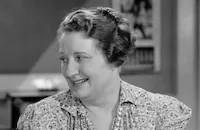
Ann Shoemaker

Charles Lane
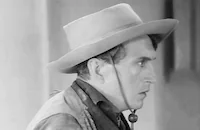
Paul Fix
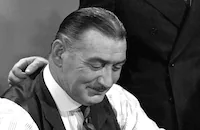
Edward Keane
Harry Worth
Adrian Morris

Joe Yule
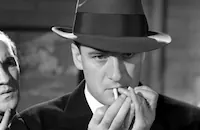
Elliott Sullivan
Douglas Wood
Gladden James
Lester Dorr
Dick Wessel
Emerson Treacy
Wally Maher
Harry Hayden
George Cooper
George Travell
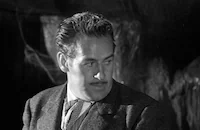
Roy Barcroft
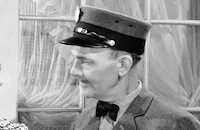
John Butler
Warren Mccollum
Mark Strong
Hal Craig
Eddie Poster
Gene Coogan
Paul Kruger
David Newell

James Flavin
Carl Saxe
Dorothea Wolbert
James Kelso
Buz Buckley

Fay Helm
Bud Geary
George Rosener
Edward Chandler
Murdock Macquarrie
Constantine Romanoff
Bud Fine
Harry Strang
George Anderson
C. A. Bachman
Sherrie Overton
Hooper Atchley
Raymond Bailey
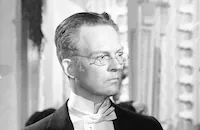
Donald Dillaway
Alan Davis
Margaret Padula
Johnny Day
Myra Marsh
Leigh De Lacy
Ben Hall
Dora Clemant

Joseph Crehan
Lee Prather
Arthur Roberts
John Dilson
Homer S. Cummings
James V. Bennett
Crew
E. J. Babille
Jack Chertok
Clyde De Vinna
Herbert Glazer
Ralph E. Goldstein
John C. Higgins
Douglas Shearer
Elmer Sheeley
David Snell
Dolly Tree
Paul C. Vogel
Edward Ward

Film Details
Technical Specs

Quotes
Trivia
Notes
The following dedication appeared in the opening credits of this film: "Dedicated to the United States Department of Justice, whose coöperation made this picture possible." In addition, the opening credits contain a statement claiming that this was the first film to feature "scenes actually photographed in our federal prisons." This claim is inaccurate, however, as there were other films prior to They All Come Out that used actual footage of federal prisons. According to Variety and Hollywood Reporter pre-release news items, M-G-M originally intended the film to be a four-reel documentary on the federal prison system. The picture was to have been a special short in Metro's "Crime Doesn't Pay" series, which was produced cooperatively with the Justice Department. Director Jacques Tourneur and cameraman Clyde DeVinna reportedly began filming prison scenes over a period of two months in the latter part of 1938. They All Come Out was eventually expanded to a feature-length film when M-G-M decided to add the plot of Joe and Kitty's romance. The film marked producer Jack Chertok's first feature film assignment. According to a contemporary source, some scenes were filmed on location at the Beverly Hills branch of the Bank of America; the U.S. Hospital for Defective Delinquents at Springfield, OH; the Women's Reformatory at Alderton, WV; the Federal Prison at Atlanta; the Chillicothe Ohio Reformatory; and at Alcatraz Prison. A contemporary New York Times article notes that "a government policy against publicizing narcotic addiction, together with the Hays office, eliminated the Leavenworth annex from the story."












